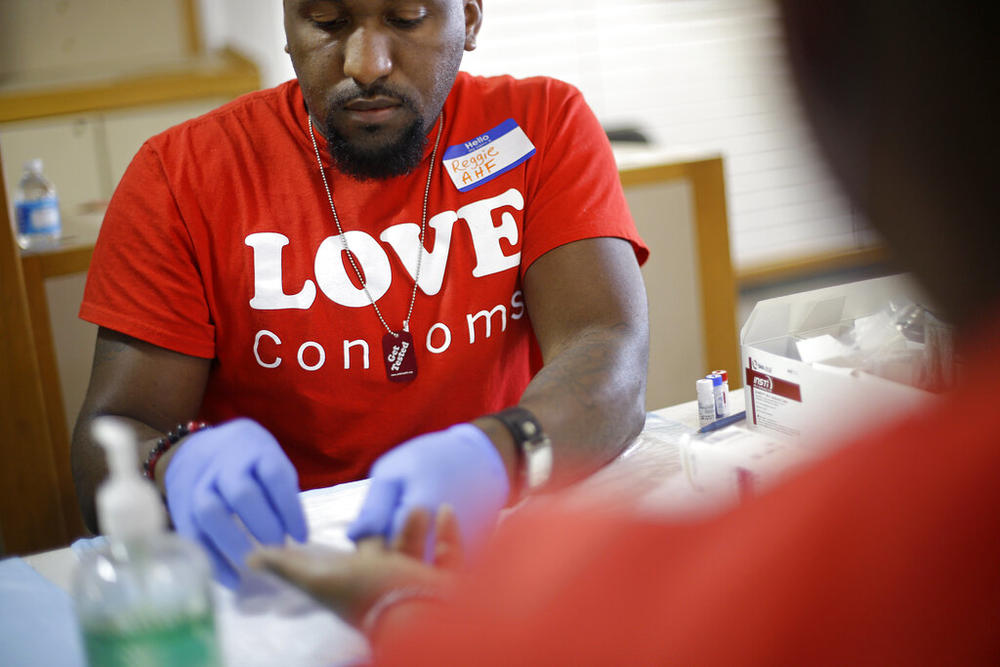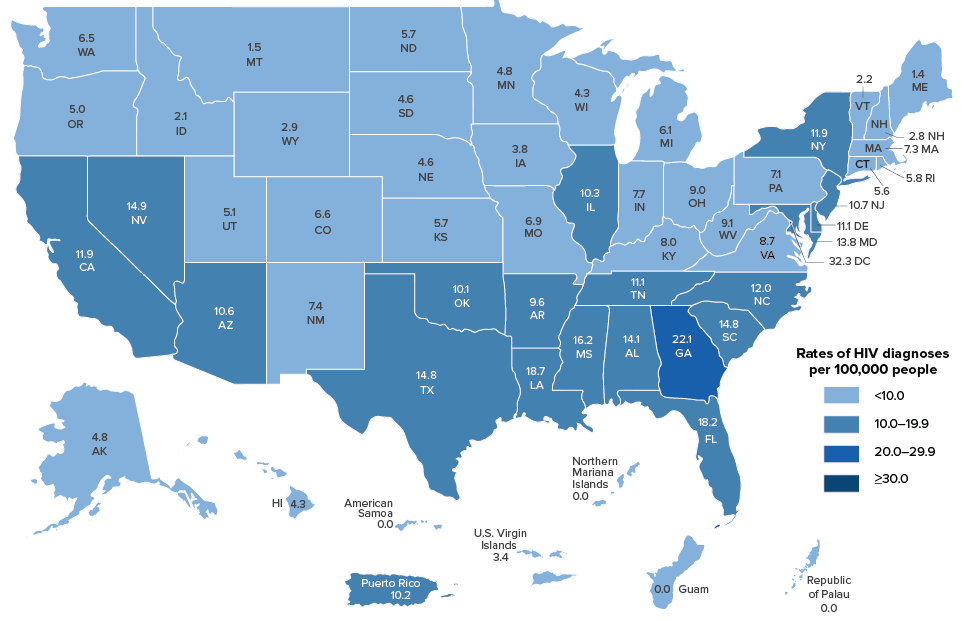
Caption
Reggie Batiste, left, program manager with AIDS Healthcare Foundation, administers a free HIV test as part of National HIV Testing Day in June 2013, in Atlanta. Nearly a decade later, Georgia remains a epicenter of the HIV epidemic, according to experts.
Credit: AP Photo/David Goldman


